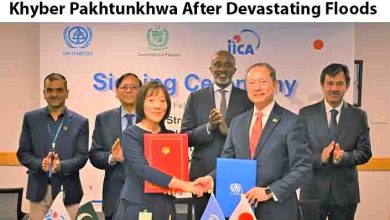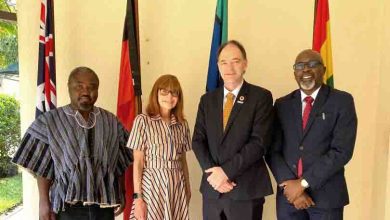Pakistan urges unified action to assist Asia-Pacific nations tackle climate challenges
SAPM Romina Alam says empowering local govts and engaging civil society essential in driving transformative change
Pakistan has called for a coordinated effort to help the vulnerable nations of the Asia-Pacific region confront many climate change-related challenges like floods, heat waves, water shortages and melting glaciers.
“Together, we can build a world where climate action and sustainable development go hand in hand, leaving no one behind,” Romina Khurshid Alam, Special Assistant to the prime minister, told a U.N. conference on Sunday.
Speaking at the 4th Global Conference on Strengthening Synergies Between the Paris Agreement and the 2030 Agenda for Sustainable Development, she underscored the need for knowledge sharing and utilization of collective experiences and expertise to chart a path toward a consortium that focuses on disaster risk reduction strategies for the Asia-Pacific region.
Ms. Alam, who is and convener of the National Parliamentary Taskforce on Sustainable Development Goals (SDGs), introduced herself as “representing the Parliament of Pakistan” at the conference which is a part of the UN Economic and Social Council (ECOSOC)’s High-Level Political Forum. “I bring your attention to the Resolution I recently presented in the National Assembly to appreciate the contributions of the UN and its agencies that use their expertise and resources to help Pakistan in its fight against climate change. The Resolution was passed unanimously by the members of the August Forum on 23rd June 2023,” the Pakistani delegate told the conference.
Pakistan, she said, recognizes the critical importance of aligning its efforts with the Paris Agreement to the temperatures limited to 1.5 degrees and the 2030 UN Development Agenda. The country, she said, faces many challenges as 1/3rd of its land found itself underwater as a result of the floods of 2022 which were a wake-up call to the world on the threats of climate change. The floods affected 33 million people, while more than 1,700 lives were lost, Ms. Alam said adding that damages and losses have been calculated at more than Rs. 6.4 trillion. Pakistan, she pointed out, contributes less than 1% of the global greenhouse gases,
“Even though these challenges threaten the economic prosperity of our country, the well-being of our people, and the security of our future generations, Pakistan is committed to the SDGs,” the Pakistan delegate said.
“Our government has implemented policies and strategies, focusing on renewable energy. We have also placed great emphasis on reducing poverty, promoting quality education, gender equality, and inclusive economic growth.”
Pakistan, she said, firmly believes that empowering local governments, engaging civil society, and mobilising private sector partnerships are essential in driving transformative change.
“Our task force has been working tirelessly to improve legislation and enhance accountability. We are committed to ensuring that Pakistan plays an active role in the global discourse on climate change and sustainable development.” In conclusion, Ms. Alam said, “let us leave here with a renewed determination to strengthen the synergies between the Paris Agreement and the 2030 Agenda, knowing that our actions today will shape the future we leave for generations to come.”







